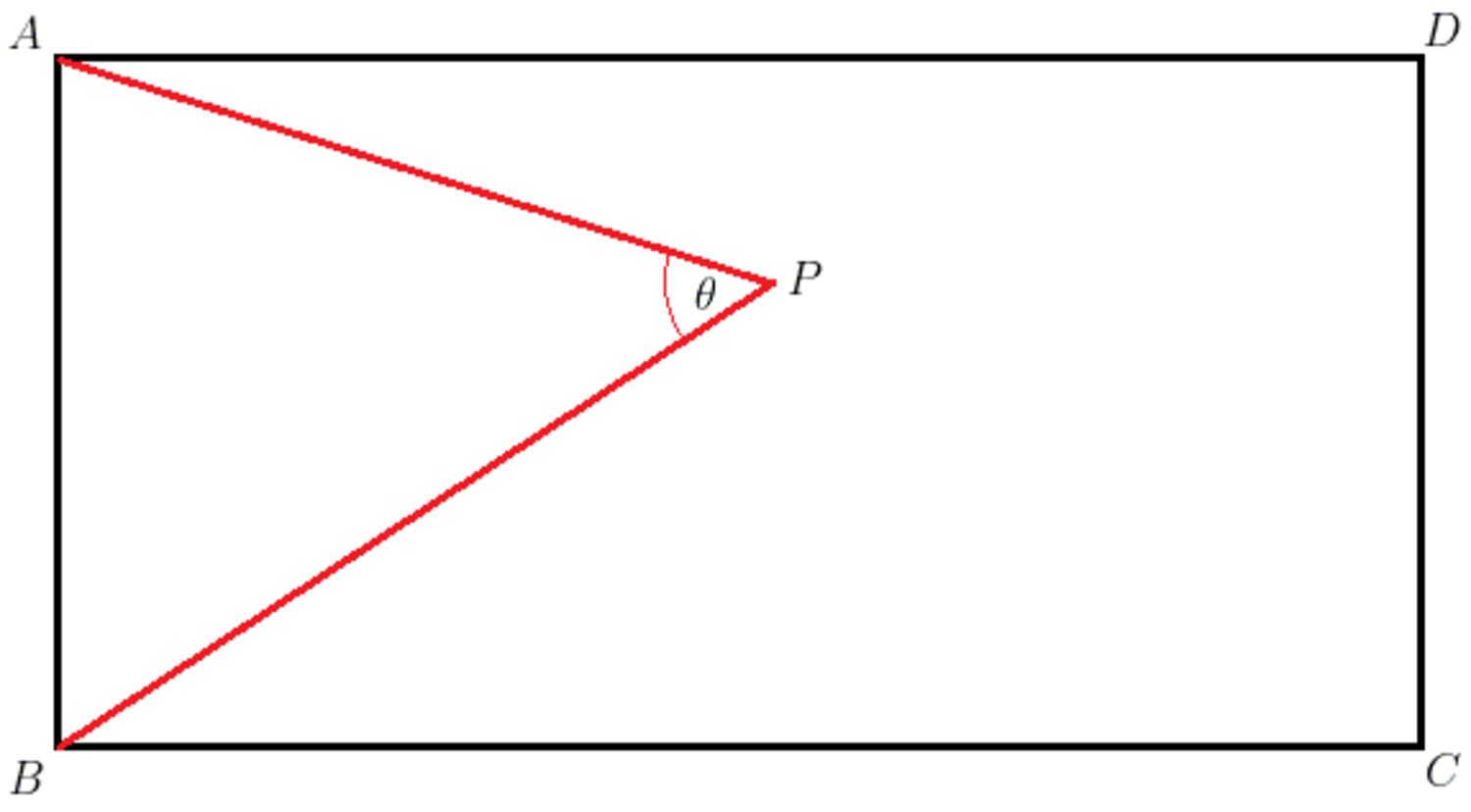This section requires Javascript.
You are seeing this because something didn't load right. We suggest you, (a) try
refreshing the page, (b) enabling javascript if it is disabled on your browser and,
finally, (c)
loading the
non-javascript version of this page
. We're sorry about the hassle.

Let's look at the general problem, where A B = 1 and B C = b (only the ratio of the sides matters). If we take the point B as an origin, with x -axis along B C , and let P have coordinates ( x , y ) , then we find θ = tan − 1 x y + tan − 1 x 1 − y
To find the expected value of θ , we need to evaluate E ( θ ) = b 1 ∫ 0 b ∫ 0 1 tan − 1 x y + tan − 1 x 1 − y d y d x
This is unpleasant, but not impossible; after a bit of wrangling, we find E ( θ ) = 2 cot − 1 b + b lo g b + 2 b b 2 − 1 lo g ( b 2 + 1 )
For the particular case b = 1 + 2 , we have 2 cot − 1 b = 4 π . Also, b satisfies b 2 − 1 = 2 b . Finally, using the identity sinh − 1 z = lo g ( z + 1 + z 2 ) gives lo g b = sinh − 1 1 . Putting all this together, E ( θ ) = 4 π − 2 3 lo g 2 + 2 sinh − 1 1
or a = 4 , b = 3 , c = 2 , d = 1 , so that a + b + c + d = 1 0 .